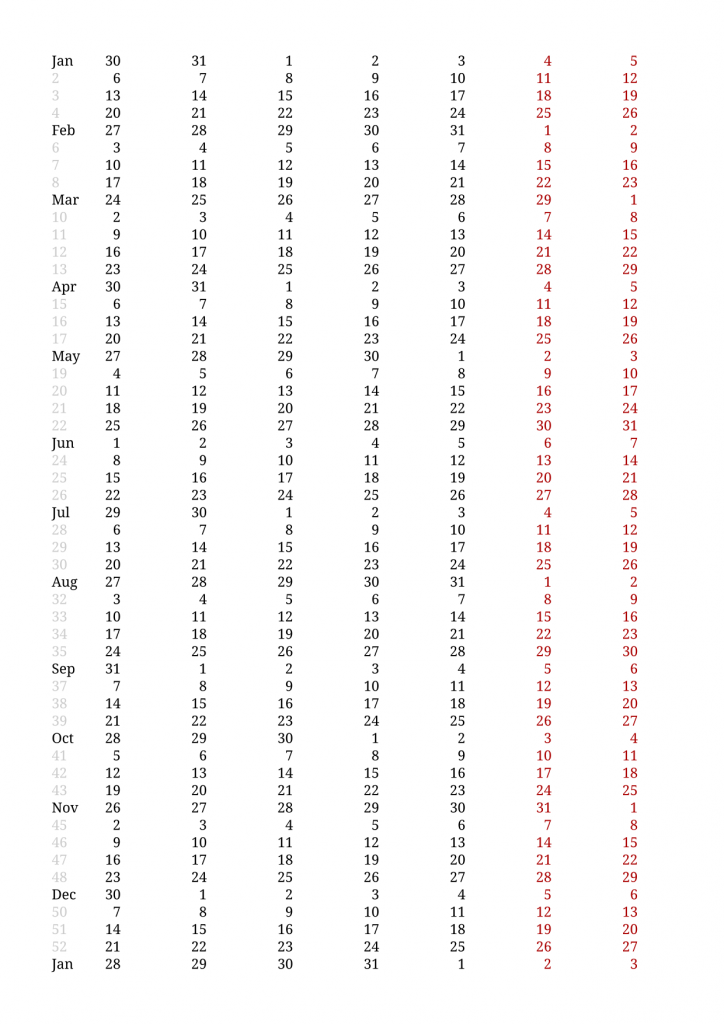Once a year inevitably the time arrives when you need to print a new calender for your pinboard. You know, end of february. And this year I wanted try a new layout, focused on weeks.
I vaguely remember coding some calender generator that would output a simple SVG file but for the life of me I couldn’t find it. I knew I had to have had it last year because I printed last year’s calender with it but the source code was nowhere to be found, and no combination of search phrases could make it show up.
That meant I had to solve all those tiny little problems again because no matter the API, dates are simply a horrible concept and should be abolished in favour of something simpler.
One especially pesky problem I needed to solve was to find a date given a year and an ISO week number. The only solution I could find was rather ugly:
DateTimeFormatter.ISO_WEEK_DATE
.parse("${year}-W${"%02d".format(week)}-1")Even though this is an incredibly terrible solution I am giving this type of calender a try this year:

If you are interested in trying it as well, grab the PDF!